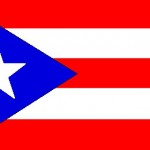
Rep. Serrano says island’s decision could spell trouble for GOP
With the Latino vote playing a major factor in President Obama’s reelection, U.S. Rep. Jose Serrano (D) said Tuesday’s vote by Puerto Rico asking to become the 51st state could pose a new challenge for the Republican-controlled House.
But Serrano, a former chairman of the Congressional Hispanic Caucus whose district includes Mott Haven and Hunts Point, stopped short of saying he would submit legislation to reflect the island’s new majority sentiment.
“I was born in the colony, I have loyalties to the colony. As a Puerto Rican, I don’t think my birthplace should be a colony,” he said. “As a congressman, I don’t think my country should have colonies.”
Born in Mayaguez, Puerto Rico, Serrano has been a longtime advocate for Puerto Rican self-determination but has not taken a position on whether the island should choose statehood or independence.
In a post-election press release he called the statehood vote “an earthquake in Puerto Rican politics.”
“There’s never been a vote where every option ends the colonial status,” he said. “They asked for change. You can’t ignore it.”
For the past 114 years, Puerto Rico has been a commonwealth of the United States. Although Puerto Ricans hold U.S. citizenship, residents of the island cannot vote in U.S. elections, and their only representation stateside is a resident commissioner in Congress.
Yesterday’s vote was the fourth time the referendum was held. Previous votes in 1967, 1993 and 1998 never yielded a clear majority for independence or statehood.
In the past, problems with the wording of the referendum have gotten in the way of a clear majority, said Peter Fontanes, chairman of the pro-statehood advocacy group Mission 51. In the 1998 referendum, “none of the above,” garnered more than half the vote.
“It was always constant playing around with the words to the point of absurdity,” said Fontanes.
Tuesday’s vote had two parts for voters to answer. First, it asked if voters wished to remain a territory of the United States. Nearly 54 percent voted no.
The second part asked voters to select one of three options: statehood, independence or sovereign free association – an option that would grant the republic more rights while still designating some responsibilities, such as defense, to the U.S. government.
An overwhelming majority – nearly 61 percent – voted in favor of statehood.
“It will make sure we’re never separated from the country we love,” said Fontanes.
But the referendum is non-binding, meaning the next step is congressional approval.
That means it could become a hot potato for GOP lawmakers still reeling from a strong Latino turnout for Obama, Serrano said.
“If a Republican-led House totally ignores a request by the Latino community, it could turn into a whole other issue,” Serrano said.
Tuesday’s vote was held in the wake of a a March 2011 report by the President’s Task Force on Puerto Rico, created in 2000 by former President Bill Clintont to continually reevaluate Puerto Rico’s relationship with the United States.
The task force’s top recommendation to the President and Congress last year was that they “work to ensure that Puerto Ricans are able to express their will about status options and have that will acted upon by the end of 2012 or soon thereafter.”
Under the Task Force recommendations, a member of congress must file legislation to reflect the vote, after which, it would be treated as any other piece of legislation: It would need to be voted on and signed into law by the president.
“There is no set formal way a territory becomes a state,” said Philip Schmidt, Serrano’s chief of staff.
A spokesman for the island’s current resident commissioner, Pedro Pierluisi, declined comment on whether or not the resident commissioner intended to file the legislation himself. Serrano was also non-committal.
“I intend to work closely with Representative Pierluisi to determine the best strategy and timing for any legislation seeking to implement the change in Puerto Rico’s status that its voters asked for,” Serrano said.
Franklin Flores, a longtime pro-independence activist, said it was unlikely there will be a 51st star on the U.S. flag any time soon.
“It’s not going to change anything,” said Flores, of East Harlem. “I doubt the U.S. Congress is going to give statehood to a Latino country.”

61% is incorrect. 61% OF the individuals that actually filled in the second question of the plebiscite. In other words, Puerto Ricans living in Puerto Rico don’t exactly want to become a state.